Summary
- Blockchain applications provide new ways to demonstrate accountability of ESG goals, operate verifiable carbon marketplaces, streamline credit registry processes, and automate the delivery of support funds to climate disaster victims.
- Four companies presented here showcase the application of Web3 technology toward environmental and climate disaster-related use cases.
- Read more examples of Crypto in Action on the CCI collection page
- Read our report on Proof of Work & Enabling the Energy Transition
Environmental projects using blockchain benefit from increased efficiencies and market penetration
Global institutions and scientists continue to draw attention to the growing severity of climate change. The United Nations’ recently published Interconnected Disaster Risks report identifies accelerated risk of ecosystem collapse if inaction to climate change continues. As our ability to tackle environmental challenges has evolved, so has our need to track the impact of actions that individuals and organizations take to protect the planet. Carbon markets, environmental asset management tools, LEED certification, and other rating and tracking mechanisms were born of this need.
However, current environmental asset markets and monitoring systems typically face three primary problems: scalability, cost, and lack of public trust. These are challenges that also extend to climate disaster response, with organizations and governments facing challenges with transparency and administrative frictions in the disbursement of funds.
Misconceptions about emerging tech and Web3’s environmental impact and energy use fail to recognize new blockchain approaches to addressing existing approaches to environmental monitoring systems. Organizations exploring ways tech can help organizations monitor and amplify their environmental impact by putting environmental sustainability assets and supply chains on the blockchain.
Here are four projects leveraging blockchain to address environmental concerns:
Plastiks – creating a new global market for recycled plastic
Plastiks enables sustainability-minded businesses to sponsor plastic recovery organizations. Currently, plastic recovery and recycling is highly localized, with no global marketplace for buying and selling high quality plastic. Plastiks seeks to create a verifiable global marketplace for plastic, to create a reliable supply of recyclable plastic and decrease the production of new plastic materials.
Plastiks works with local partners to verify the quality and quantity of plastic recovered by local projects, minting NFTs for recovered plastic––which they call Plastic Recycling Guarantees, or PRGs––that serve as a verifiable receipt and are then tradable through the Plastiks platform. Through the platform, businesses and other supporters of environmental causes can also sponsor plastic recovery projects, indicating a plastic recovery goal and select a recovery project from the list of over 10 partnered projects from around the world. Recovery projects create jobs for recovery workers across the global south, while providing sponsors a means to communicate and verify their commitment to ESG goals.
To date, Plastiks has facilitated the recovery of over 1.9M kilograms of plastic.
VIA – tracking fuel sources for electric vehicles with zero-knowledge proofs for the US Department of Energy
VIA leverages a consortium-based blockchain to verify the fuel mix of electric vehicles (EVs) at vehicle-to-building and vehicle-to-grid exchanges. VIA’s platform addresses challenges with the potential of multiple drivers, differing charge and discharge locations, and data privacy and anonymity requirements or preferences of drivers and EV owners.
VIA is potentially the first application of zero-knowledge proof (ZKP) technology to track fuel sources among EVs, and is the only verification software to be evaluated by the US Department of Energy and the US Department of Defense. Blockchain-enabled ZKPs allow for the secure verification of information revealing only the minimum amount of data required, protecting the privacy of EV owners while providing a transparent and reliable record of charge history.
VIA is the only Web3 company to be included in the Amazon Web Services Sustainable Cities Accelerator for Infrastructure, and was awarded the Switzerland Global Enterprise Tell Award in 2021.
Regen Network: Kulshan Carbon Trust pilot – creating a new carbon asset and lowering barriers to carbon credit marketplaces
The Kulshan Carbon Trust (KCT) in Washington state worked with Web3 carbon credit marketplace platform Regen Network to put a new ecocredit class into the market with the KCT biochar credit. By developing carbon marketplaces with blockchain, Regen offers low cost credit registration, payments services, improved monitoring and transparency, and novel revenue streams for land stewards through affordable brokerage services.
Like plastic, biochar was a previously unrecognized environmental asset. The KCT educated community stakeholders on the biochar carbon sequestration method with the help of a grant from the Regen Network Foundation. Credits developed through this pilot adhere to standards-setting body Verra’s VM0044 carbon accounting methodology. The new biochar credits underwent processing and verification before being sold on the Regen marketplace with funds from the credit sales distributed through the trust back to the community, providing new revenue for community members who were already adhering to positive environmental practices.
The Regen Network as a whole has retired over 588K carbon credits, representing over 15M hectares of land. Regen utilizes over 40 methodologies to measure improvements in ecological state.
AID:Tech – making disaster aid more transparent and accountable
Environmental disaster relief efforts are plagued by issues of transparency and administrative frictions in the disbursement of funds. With blockchain infrastructure, aid delivery efforts benefit from increased transparency and efficiency of decentralized ledgers and additional mechanisms to compensate volunteers.
AID:Tech’s offerings include a decentralized digital identity tool, through which organizations deliver and track funds directly to impacted individuals. After verifying their identity through AID:Tech’s Kare App, participants are provided a digital wallet where they receive funds from aid organizations and can shop for essential items through Amazon Business.
Over 500K people have received aid through AID:Tech’s platform, with over $300M in funds delivered.
The Outlook for Climate and Tech
Projects like these are demonstrating the real time potential of novel Web3 tools to improve global environmental monitoring regimes while creating benefits for local communities. These decentralized incentive mechanisms could inspire new frameworks for nascent ecosystem services in currently unregulated markets (e.g. biodiversity or methane). Blockchains can facilitate compliance with pending and in-place environmental protection regulations, such as Extended Producer Responsibility (EPR) laws around materials reporting. More transparency around supply can support more sustainable supply chains, and tokenization of assets that existed already but were not being commodified (such as the above examples of plastic and biochar) can generate incremental new income for small business operators.
The success of these initiatives will require concurrent policy actions. Verification standards should be standardized across jurisdictions to support the consistency of information required for these markets to scale. Support should be provided to small businesses for verification in cases of assets (like carbon credits) which may be too costly for small business owners.
As familiarity with Web3 concepts, regulatory clarity advances, and demonstrable use cases advance, continued adoption by industries, governments, and communities is likely to follow – with exciting potential for the environmental health of the planet.
Here is your Web3 cheat sheet to how solutions are supporting climate initiatives:
- Creating trust in records of truth: Blockchain can support the creation of indisputable records. Due to the transparency and auditability of decentralized ledgers, projects are able to create environmental asset marketplaces that reliably track and verify the entire lifecycle of a credit or recovery guarantee.
- Illuminating supply chains: Visibility into (and auditability of) the full supply chain makes reporting regimes more transparent and creates efficiencies that support cost savings. Verification of information has also seen improvements in privacy protection of participants with zero-knowledge proofs (ZKPs), or the ability of minimally necessary information to be verified without the need to reveal other sensitive information about a participant’s identity.
- Creating behavioral incentives: Tokenomics design can create more momentum in the market around behaviors such as helping projects scale by increasing price discovery to draw more liquidity into the system.
- Streamlining costs and transactions: Smart contracts––or automated segments of code that only execute under specific conditions––further reduce the costs of market participation and provide tools for creating automated delivery of funds in the case of humanitarian organizations providing disaster relief to impacted communities.




